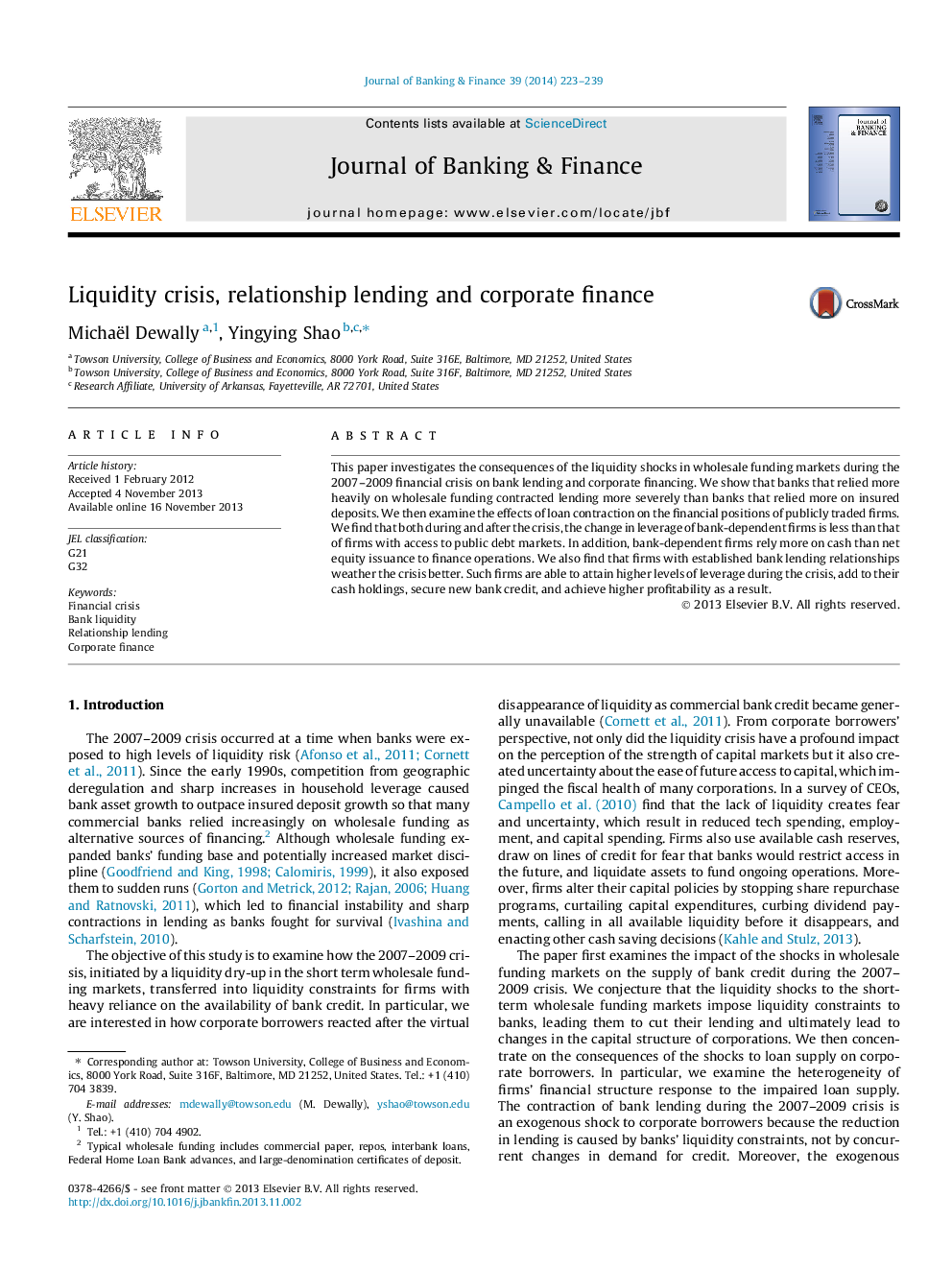| Article ID | Journal | Published Year | Pages | File Type |
|---|---|---|---|---|
| 5089094 | Journal of Banking & Finance | 2014 | 17 Pages |
Abstract
This paper investigates the consequences of the liquidity shocks in wholesale funding markets during the 2007-2009 financial crisis on bank lending and corporate financing. We show that banks that relied more heavily on wholesale funding contracted lending more severely than banks that relied more on insured deposits. We then examine the effects of loan contraction on the financial positions of publicly traded firms. We find that both during and after the crisis, the change in leverage of bank-dependent firms is less than that of firms with access to public debt markets. In addition, bank-dependent firms rely more on cash than net equity issuance to finance operations. We also find that firms with established bank lending relationships weather the crisis better. Such firms are able to attain higher levels of leverage during the crisis, add to their cash holdings, secure new bank credit, and achieve higher profitability as a result.
Related Topics
Social Sciences and Humanities
Economics, Econometrics and Finance
Economics and Econometrics
Authors
Michaël Dewally, Yingying Shao,
